



Foreword:
The Unchained Cleric has access to new features with a talent system that expands player options, which may allow a character to punch above its weight class. Check with your GM before bringing an Unchained Cleric to your table! This class design references rules available in the Unchained Action Economy. It is otherwise compatible with the default combat system of 1st edition. The terminology listed below is used to define respective class features, as well as highlight key differences in functionality:
Faith Testament:
The Unchained Cleric's new class features, adding further customization.
Minor Domain Power:
A domain's first granted ability, often listed as usable a number of times per day equal to 3 + the cleric's Wisdom modifier.
Major Domain Power:
A domain's second granted ability, often granted at either 6th or 8th level.
Channel Energy:
The Unchained Cleric does not chooses to deal damage to undead or heal living creatures (or vice versa). Channel Energy affects all creatures within range, based on the type of energy channeled.
Images provided by Pathfinder Wiki and Pinterest. None of the images are mine, but they are otherwise incredible!
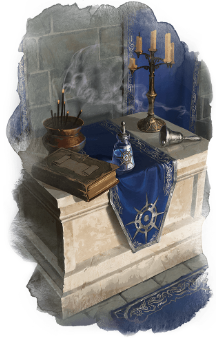


Unchained Cleric
Table: Unchained Cleric Spells per Day
| Level | Base Attack Bonus | Fort Save | Ref Save | Will Save | Special | 0th | 1st | 2nd | 3rd | 4th | 5th | 6th | 7th | 8th | 9th |
|---|---|---|---|---|---|---|---|---|---|---|---|---|---|---|---|
| 1st | +? | +2 | +0 | +2 | Aura, Path of the Divine, Spellcasting, Orisons, Channel Energy 1d?, Spontaneous Casting, Domain, Faith Testament | 3 | 1+1 | — | — | — | — | — | — | — | — |
| 2nd | +? | +3 | +0 | +3 | Faith Testament | 4 | 2+1 | — | — | — | — | — | — | — | — |
| 3rd | +? | +3 | +1 | +3 | Channel energy 2d? | 4 | 2+1 | 1+1 | — | — | — | — | — | — | — |
| 4th | +? | +4 | +1 | +4 | Faith Testament | 4 | 3+1 | 2+1 | — | — | — | — | — | — | — |
| 5th | +? | +4 | +1 | +4 | Channel energy 3d? | 4 | 3+1 | 2+1 | 1+1 | — | — | — | — | — | — |
| 6th | +? | +5 | +2 | +5 | Faith Testament | 4 | 3+1 | 3+1 | 2+1 | — | — | — | — | — | — |
| 7th | +? | +5 | +2 | +5 | Channel energy 4d? | 4 | 4+1 | 3+1 | 2+1 | 1+1 | — | — | — | — | — |
| 8th | +? | +6 | +2 | +6 | Faith Testament | 4 | 4+1 | 3+1 | 3+1 | 2+1 | — | — | — | — | — |
| 9th | +? | +6 | +3 | +6 | Channel energy 5d? | 4 | 4+1 | 4+1 | 3+1 | 2+1 | 1+1 | — | — | — | — |
| 10th | +? | +7 | +3 | +7 | Faith Testament | 4 | 4+1 | 4+1 | 3+1 | 3+1 | 2+1 | — | — | — | — |
| 11th | +? | +7 | +3 | +7 | Channel energy 6d? | 4 | 4+1 | 4+1 | 4+1 | 3+1 | 2+1 | 1+1 | — | — | — |
| 12th | +? | +8 | +4 | +8 | Faith Testament | 4 | 4+1 | 4+1 | 4+1 | 3+1 | 3+1 | 2+1 | — | — | — |
| 13th | +? | +8 | +4 | +8 | Channel energy 7d? | 4 | 4+1 | 4+1 | 4+1 | 4+1 | 3+1 | 2+1 | 1+1 | — | — |
| 14th | +? | +9 | +4 | +9 | Faith Testament | 4 | 4+1 | 4+1 | 4+1 | 4+1 | 3+1 | 3+1 | 2+1 | — | — |
| 15th | +? | +9 | +5 | +9 | Channel energy 8d? | 4 | 4+1 | 4+1 | 4+1 | 4+1 | 4+1 | 3+1 | 2+1 | 1+1 | — |
| 16th | +? | +10 | +5 | +10 | Faith Testament | 4 | 4+1 | 4+1 | 4+1 | 4+1 | 4+1 | 3+1 | 3+1 | 2+1 | — |
| 17th | +? | +10 | +5 | +10 | Channel energy 9d? | 4 | 4+1 | 4+1 | 4+1 | 4+1 | 4+1 | 4+1 | 3+1 | 2+1 | 1+1 |
| 18th | +? | +11 | +6 | +11 | Faith Testament | 4 | 4+1 | 4+1 | 4+1 | 4+1 | 4+1 | 4+1 | 3+1 | 3+1 | 2+1 |
| 19th | +? | +11 | +6 | +11 | Channel energy 10d? | 4 | 4+1 | 4+1 | 4+1 | 4+1 | 4+1 | 4+1 | 4+1 | 3+1 | 3+1 |
| 20th | +? | +12 | +6 | +12 | Final Testament | 4 | 4+1 | 4+1 | 4+1 | 4+1 | 4+1 | 4+1 | 4+1 | 4+1 | 4+1 |
Note: "+1" represents the domain spell slot
Note: See Path of the Divine for "?"

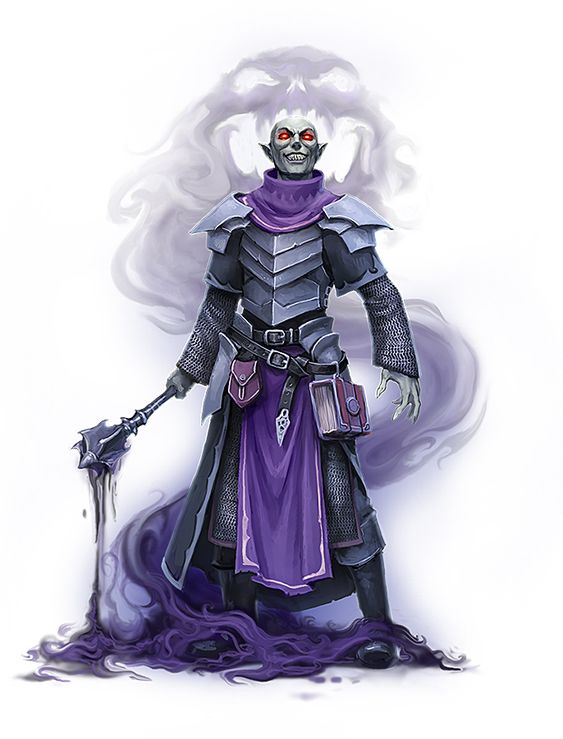
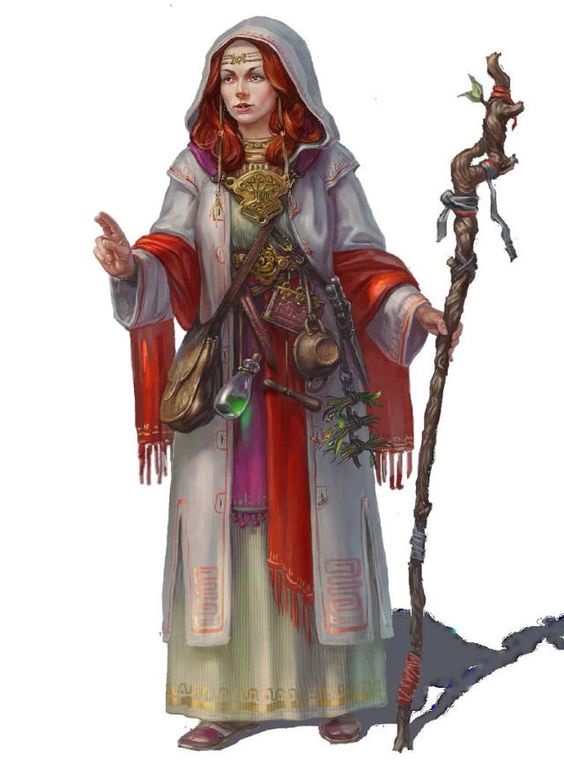
More than capable of upholding the honor of their deities in sermon and battle, clerics often prove stalwart and capable combatants. Their true strength lies in their capability to draw upon the power of their deities, whether to increase their own and their allies’ prowess in battle, to vex their foes with divine magic, or to lend healing to companions in need. As their powers are influenced by their faith, all clerics must focus their worship upon a divine source. While the vast majority of clerics revere a specific deity, a small number dedicate themselves to a divine concept worthy of devotion—such as battle, death, justice, or knowledge—free of a deific abstraction.
Alignment
A cleric’s alignment must be within one step of her deity’s, along either the law/chaos axis or the good/evil axis.
Hit Die:
d8
Starting Wealth
4d6 × 10 gp (average 140 gp, maximum 240 gp.) In addition, each character begins play with an outfit worth 10 gp or less
Class Skills
The cleric’s class skills are Appraise (Int), Craft (Int), Diplomacy (Cha), Heal (Wis), Knowledge (arcana) (Int), Knowledge (history) (Int), Knowledge (nobility) (Int), Knowledge (planes) (Int), Knowledge (religion) (Int), Linguistics (Int), Profession (Wis), Sense Motive (Wis), and Spellcraft (Int).
Skill Ranks Per Level
See Path of the Divine
Base Attack Bonus
See Path of the Divine
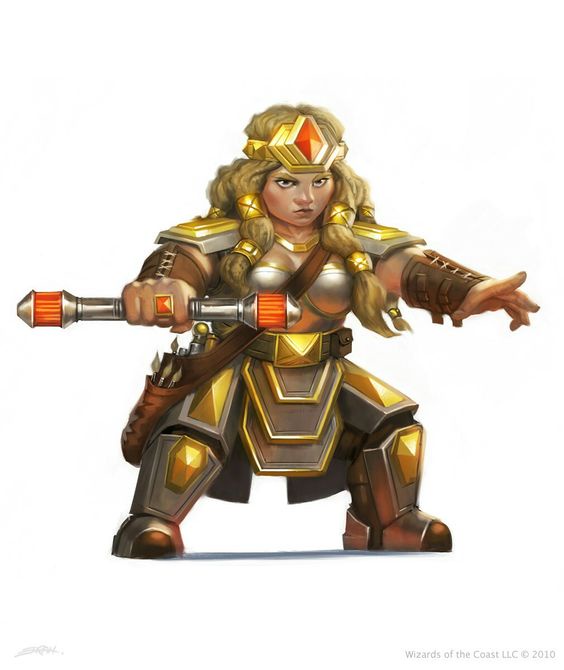
Class Features
The following are class features of the Unchained Cleric.
Weapon and Armor Proficiency
Clerics are proficient with the following weapons: club, heavy mace, light mace, quarterstaff, and sling. They are not proficient with any type of armor or shield.
Aura (Ex)
A cleric of a chaotic, evil, good, or lawful deity has a particularly powerful aura corresponding to the deity’s alignment (see detect evil for details).
Path of the Divine (Ex)
The cleric chooses what methods to employ that are best to carry out the will of her deity. At first level, she chooses the path of Evangelist, Exalted, or Sentinel, and gains listed benefits. Once this choice is selected, it cannot be changed:
-
Evangelist: The cleric gains a number of skill ranks equal to 6 + her Intelligence modifier at each level. Her base attack bonus from cleric levels is equal to half her class level (which is the same as for a sorcerer or wizard).
-
Exalted: The cleric gains a number of skill ranks equal to 4 + her Intelligence modifier at each level. She gains proficiency with all simple weapons and light armor. Her base attack bonus from cleric levels is equal to three-quarters of her class level (which is the same as for a bard or druid).
-
Sentinel: The cleric gains a number of skill ranks equal to 2 + her Intelligence modifier at each level. She gains proficiency with all simple weapons, light armor, medium armor, and shields (except tower shields). A Sentinel is also proficient with her deity’s favored weapon. Her base attack bonus from cleric levels is equal to three-quarters of her class level (which is the same as for a bard or druid)
Spellcasting
A cleric casts divine spells which are drawn from the cleric spell list. Her alignment, however, may restrict her from casting certain spells opposed to her moral or ethical beliefs; see Chaotic, Evil, Good, and Lawful Spells. A cleric must choose and prepare her spells in advance.
To prepare or cast a spell, a cleric must have a Wisdom score equal to at least 10 + the spell level. The Difficulty Class for a saving throw against a cleric’s spell is 10 + the spell level + the cleric’s Wisdom modifier.
Like other spellcasters, a cleric can cast only a certain number of spells of each spell level per day. Her base daily spell allotment is given on Table: Cleric. In addition, she receives bonus spells per day if she has a high Wisdom score (see Table: Ability Modifiers and Bonus Spells).
Clerics meditate or pray for their spells. Each cleric must choose a time at which she must spend 1 hour each day in quiet contemplation or supplication to regain her daily allotment of spells. Time spent resting has no effect on whether a cleric can prepare spells. A cleric may prepare and cast any spell on the cleric spell list, provided that she can cast spells of that level, but she must choose which spells to prepare during her daily meditation.
Chaotic, Evil, Good, and Lawful Spells: A cleric can’t cast spells of an alignment opposed to her own or her deity’s (if she has one). Spells associated with particular alignments are indicated by the chaotic, evil, good, and lawful descriptors in their spell descriptions.
Orisons
Clerics can prepare a number of orisons, or 0-level spells, each day, as noted on Table: Cleric under “Spells per day.” These spells are treated like any other spell, but they are not expended when cast and may be used again.
Channel Energy (Su)
Regardless of alignment, any cleric can release a wave of energy by channeling the power of her faith through her holy (or unholy) symbol. This energy is used to simultaneously cause and heal damage, depending on the type of energy channeled and the creatures targeted.
A good cleric (or a neutral cleric who worships a good deity) channels positive energy and heals living creatures, and deals damage to undead creatures. An evil cleric (or a neutral cleric who worships an evil deity) channels negative energy and deals damage to living creatures, and heals undead creatures. A neutral cleric of a neutral deity (or one who is not devoted to a particular deity) must choose whether she channels positive or negative energy. Once this choice is made, it cannot be reversed. This decision also determines whether the cleric can cast spontaneous cure or inflict spells (see spontaneous casting).
Channeling energy causes a burst that affects all creatures in a 30-foot radius centered on the cleric. The amount of damage dealt or healed is dependent on the cleric’s Path of the Divine: A Sentinel’s is equal to 1d6 points of damage, an Exalted’s is equal to 1d8 points of damage, and an Evangelist’s is equal to 1d10 points of damage. The amount of damage increases by one die of damage for every two cleric levels beyond 1st (at 3rd, 5th, 7th, and so on). Creatures that take damage from channeled energy receive a Will save to halve the damage. The DC of this save is equal to 10 + 1/2 the cleric’s level + the cleric’s Wisdom modifier. Creatures healed by channel energy cannot exceed their maximum hit point total—all excess healing is lost. A cleric may channel energy a number of times per day equal to 3 + her Wisdom modifier. This is a standard action (2 acts). that does not provoke an attack of opportunity. A cleric can choose whether or not to include herself in this effect.
A cleric must be able to present her holy symbol to use this ability.
A good cleric (or a neutral cleric of a good deity) can channel stored spell energy into healing spells that she did not prepare ahead of time. The cleric can “lose” any prepared spell that is not an orison in order to cast any cure spell of the same spell level or lower (a cure spell is any spell with “cure” in its name). An evil cleric (or a neutral cleric of an evil deity) can’t convert prepared spells to cure spells but can convert them to inflict spells (an inflict spell is one with “inflict” in its name). A cleric who is neither good nor evil and whose deity is neither good nor evil can convert spells to either cure spells or inflict spells (player’s choice). Once the player makes this choice, it cannot be reversed. This choice also determines whether the cleric channels positive or negative energy (see channel energy).
A cleric’s deity influences her alignment, what magic she can perform, her values, and how others see her. A cleric chooses one domain or subdomain from among those belonging to her deity. A cleric can select an alignment domain (Chaos, Evil, Good, or Law) only if her alignment matches that domain. If a cleric is not devoted to a particular deity, she still selects one domain to represent her spiritual inclinations and abilities (subject to GM approval). The restriction on alignment domains still applies. A cleric gains one domain spell slot for each level of cleric spell she can cast, from 1st on up. Each day, a cleric can prepare one of the spells from her domains in that slot. If a domain spell is not on the cleric spell list, a cleric can prepare it only in her domain spell slot. In addition, a cleric gains the listed Minor Domain Power from her domain. Unless otherwise noted, activating any domain power is a standard action (2 acts).Spontaneous Casting
Domain (Su)

Faith Testament
As a cleric gains experience, her devotion to her religion begins to reap divine reward. Starting at 1st level, 2nd level, and every 2 levels thereafter (last at 18th), a cleric gains one Faith Testament. Unless otherwise noted, activating a testament is a standard action (2 acts)., and a cleric cannot select an individual testament more than once.
Channel Domain (Su): The cleric can expend one use of her Channel Energy ability and one use of her Minor Domain Power to grant each other ally within 30 feet one use of the cleric’s Minor Domain Power, using her cleric level. The allies retain the use of the cleric’s Minor Domain Power until the cleric rests.
Channel the Elements (Su): The cleric can choose to have her Channel Energy deal elemental damage instead of channeling positive or negative energy. The energy damage channeled matches the corresponding domain or subdomain the cleric has (Air-Electricity, Earth-Acid, Fire-Fire, Water-Cold). The cleric must have access to an elemental domain or subdomain to select this Faith Testament.
Channeled Mastery (Ex): The cleric gains any feat with a prerequisite that includes the Channel Energy class feature as a bonus feat. Feats chosen with this Faith Testament are keyed to the cleric’s Wisdom modifier instead of Charisma. The cleric must meet the prerequisites of the feat to select it. The cleric can select this Faith Testament more than once.
Combat Medic (Ex): The cleric does not provoke attacks of opportunity when using the Heal skill to stabilize another creature, treat poison, or when casting spells with the healing descriptor (or when casting Inflict spells used to heal undead).
Elemental Aura (Su): This ability functions like Planar Aura, except the cleric chooses an Elemental Plane that corresponds to her Elemental Domain or Subdomain. This enhances magic for spells and spell-like abilities that have a descriptor matching the cleric’s chosen domain (and impeding its opposite - Fire/Water & Air/Earth), but does not cause the area to gain any aligned planar traits.. She must have access to an elemental domain or subdomain, and be at least 10th level to select this Faith Testament.
Energy Mystic (Su): The cleric chooses a single aspect of her deity’s portfolio. When she channels energy, she can choose to also unleash an enhanced effect from variant channeling based on her chosen aspect, including reductions (or increases) to the damage dealt or healing performed by her channeled energy. This additional effect applies to all creatures affected by her Channel Energy; creatures that are healed by the cleric’s energy gain the listed Heal benefit, while creatures that are damaged by the cleric’s energy gain the listed Harm effect. The cleric can select this Faith Testament more than once, choosing a new portfolio of her deity. She cannot apply more than one variant channeling ability to her channeled energy at once.
Perform Sermon (Su): The cleric can expend two uses of her Channel Energy ability and spend 10 minutes to deliver a hymn to her allies and followers. The cleric chooses a heal effect from her variant channeling to apply to each attendant. The channel effect lasts for 1 hour for each base damage dice of the cleric’s Channel Energy. The cleric can choose to anoint participants with 1 flask of holy water or unholy water each (based on her Channel Energy). Doing so increases the cleric’s Channel Bonus by 1 for the Sermon. The cleric must have the Energy Mystic ability and be at least 6th level to select this Faith Testament.
Expanded Domain (Ex): The cleric gains access to an additional domain or subdomain offered by her deity. This grants her access to spells from the new domain, as well as the domain’s Minor Domain Power. The cleric can select this Faith Testament more than once.
Gift Energy (Su): The cleric can expend two uses of her Channel Energy ability and touch a willing creature, restoring the use of a class feature the touched creature possesses. The class feature must be one measured by a pool (such as Lay on Hands, Ki Pool, or Arcane Reservoir) or one that is measured by a number of rounds per day (such as Bane, Bardic Performance or Rage). If the class feature is one measured by a pool, the touched creature regains one use of that ability. If the class feature is one that can be used for a number of rounds per day, the touched creature regains 2 rounds of that ability. The Cleric must be at least 4th level to select this Faith Testament.
Heed the Divine (Ex): The cleric gains the Deific Obedience feat (or other Obedience). The cleric gains access to the first divine boon of her deity, based on her selection from Path of the Divine. At 10th level, the cleric gains the second boon, and at 14th level she gains the third boon. The cleric must be at least 6th level to select this Faith Testament.
If You Build It, They Will Come (Ex): The cleric gains use of the Craft Wondrous Item as a bonus feat, but only for the purpose of creating altars. The cleric may create or assist in the creation of an altar of any deity whose alignment is within one step of her deity’s alignment. In addition, if the cleric and any allies within 10 feet pray at one such altar, the numeric bonus the altar provides increases by 1. If the altar provides a spell-like ability or similar effect, the DC is increased by 2. The cleric must be at least 4th level to select this Faith Testament.
Influence of the Divine (Su): The cleric can expend one use of her Channel Energy ability to gain a +5 sacred (or profane) bonus to Bluff, Diplomacy, or Intimidate checks for one hour. While under this effect, the cleric is able to shift a creature’s attitude more than one step (see Diplomacy).
Ordained Bond (Ex or Sp): The cleric forms a sacred connection to a relic or heirloom. This ability functions as Arcane Bond with an object (amulet, ring, staff, wand, or weapon).
Perform Exorcism (Su): The cleric can expend one use of her Channel Energy ability to attempt to wrest control over a magically compelled or possessed creature. The cleric makes a melee touch attack against a creature under a compulsion effect or a possessed creature. The creature receives another saving throw to overcome the compulsion effect (if one was allowed). If the creature is the host of a possession, the possessing creature can resist being ejected from the host body (Will save DC = cleric’s channel energy DC).
Pious Scriptures and Recitations (Ex): The cleric gains Scribe Scroll as a bonus feat. The cleric must be at least 2nd level to select this Faith Testament.
Planar Aura (Su): The cleric becomes able to project a portion of her deity’s realm that matches her Aura. She can expend 2 uses of her Channel Energy ability and select one component of her Aura to bring about planar energies that supplant the area around her. This ability alters a 30-foot radius around the cleric for a number of rounds equal to her cleric level, The affected area gains mildly-aligned planar traits based on the selection of her Aura component. This also enhances magic for spells and spell-like abilities that have an alignment descriptor that matches the cleric’s Aura component (and impedes magic that is opposite to her alignment component). Alternatively, she can choose to project a minor Positive-dominant (if she channels positive energy) or a minor Negative-dominant (if she channels negative energy) area around her. Using this ability again dismisses the previous use. The cleric must be at least 10th level to select this Faith Testament.
Powerful Domain (Ex): The cleric gains access to the Major Domain Power of one of her domains. The cleric must have access to the domain’s Minor Domain Power, and have a minimum cleric level to use the domain’s Major Domain Power to select this Faith Testament.
Reverent Arms (Su): The cleric gains Bless Equipment as a bonus feat. In addition, if the cleric blesses her deity’s favored weapon, the blessing lasts for 1 minute per damage dice of her Channel Energy ability. If the cleric blesses her deity’s favored weapon serving as a Divine Bond, Ordained Bond, Fiendish Boon, or Sacred Weapon, the blessing lasts for 10 minutes per base damage dice of her Channel Energy ability if the wielder’s alignment is within one step of the cleric’s.
Sacred Waters and Anointing Oils (Ex): The cleric gains Brew Potion as a bonus feat, even if she does not have the normal prerequisite. The cleric must be at least 2nd level to select this Faith Testament.
Sanctified Magic (Su): The cleric can expend one use of her Channel Energy ability as a free action whenever she casts a cleric spell. If she does, she can choose to increase the caster level by 1 or increase the spell’s DC by 1. She can expend no more than 1 use from her Channel Energy ability on a given spell in this way.
Sanctified Weaponry (Ex): The cleric can use her deity’s favored weapon as a holy symbol when casting spells that require a divine focus, somatic component, or when she channels energy. Furthermore, when the cleric casts a divine touch spell, she can choose to have the favored weapon carry the charge of the spell instead of her hand. When she delivers a touch spell with her deity’s favored weapon, she can do so as part of a melee attack made with the weapon. This attack uses the favored weapon's critical range, but the spell effect only deals ×2 damage on a successful critical hit, while the weapon damage uses its own critical modifier. Whenever the cleric casts a spell that calls for a ranged attack, she can deliver the spell through a ranged favored weapon she wields as part of a ranged attack (although this attack does not increase the spell’s range). If the cleric drops the weapon or the weapon is disarmed while carrying a charge, the charge is lost.

Spontaneous Domain: The cleric can “lose” any prepared spell in order to cast any domain spell she has access to of the same spell level or lower.
Style of Worship (Ex): The cleric gains a single ability from any available Cleric Archetype. The cleric must have a minimum Cleric Level that the ability requires (i.e. 5th level for Domain Secret). The cleric cannot select an ability that replaces or alters class skills or armor proficiencies (i.e. Political Skill). If the archetype requires an alignment, the cleric must be that alignment to select the ability. Selecting this Faith Testament does not replace other abilities. The cleric can select this Faith Testament more than once.
Swift Blessing (Ex): The cleric can activate a domain’s Minor Domain Power as a swift action (1 act). If she chooses herself as the target of the Minor Domain Power, she can instead activate it as a free action (bonus act).
Theological Intuition (Ex): The cleric may attempt Knowledge checks using her Wisdom modifier instead of her Intelligence modifier. In addition, she may make Knowledge checks untrained.
Wise Counsel (Ex): The cleric can expend one use of her Channel Energy ability as an immediate action (reaction). to allow an ally within 30 feet to reroll a skill check or ability check, and choose the more favorable result. She must choose to use this ability before the result of the first roll is known.
Final Testament
At 20th level, the cleric has demonstrated her utmost devotion to her divine patron, and reaps divine reward. She may choose one of the following as her Final Testament:
Devotion Beyond Death (Sp): The cleric may perform a ritual and cast true resurrection as a spell-like ability once per month. The cleric can even resurrect undead using this method, recreating the undead creature before it was destroyed. This ritual takes one hour to complete, and can only resurrect a creature who worships the same deity of the cleric (or whose alignment is within one step of the cleric or her deity).
Divine Apotheosis: The cleric may use her Domain Powers any number of times each day.
Divine Gift: The cleric gains the benefit of her deity’s Divine Gift. She can only benefit from her deity’s gift once.
Perfect Divine Conduit: The cleric may use her Channel Energy ability an additional 10 times each day.
Further Considerations
At the GM’s discretion, a character can be allowed to select Extra Faith Testament as a general feat.
Extra Faith Testament
Prerequisite: Faith Testament class feature
Benefit You gain one additional Faith Testament. You must meet the prerequisites for this Faith Testament.
Special: You can take this feat multiple times. Each time you do, you gain another Faith Testament.

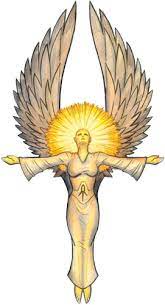

About the GM
Hello! I am Insidious - a player and Game Master with over 25 years of experience with Tabletop Roleplaying Games. Check out my content for great additions for your games. These include optional rulesets, additional classes, and solid reading material for inspiration otherwise.
Like what you see and want to see more? See my links for additional content below:
GM Binder
https://www.gmbinder.com/profile/Insidious
Ko-Fi
https://ko-fi.com/insidiousgm
Patreon
https://www.patreon.com/InsidiousGM
https://www.instagram.com/insidiousgamemaster/
https://www.facebook.com/profile.php?id=61563245126594
X
@GMInsidiou31020
Discord
Insidious5676
u/InsidiousGM
